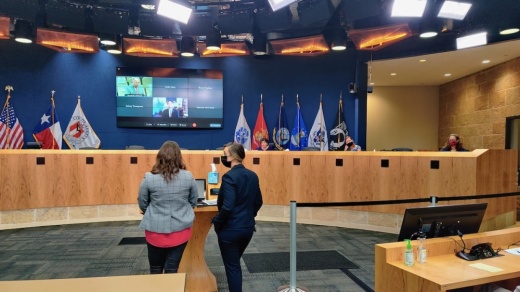Council's review of the new report came during an audit and finance committee meeting and featured criticism from several officials over how city management and staff handled preparations and communications amid the winter storm. The audit was formally accepted by the committee Nov. 10.
"It’s really, really important that we prepare for future emergencies, and one way that we do that is from learning from the past and taking action," District 10 Council Member Alison Alter said. "This is a really important step in being better prepared.”
Auditors found the city neglected past recommendations related to disaster response and that communication between residents and their local government was ineffective during the February storm. The audit also dinged Austin for a lack of supplies, staffing and training as well as equity planning with a focus on more vulnerable residents.
While those on the dais took time to compliment the effort put forth by city staff who worked through Uri, they also faulted employees including city management for overall preparations—and their reaction so far to the audit's findings.
“I have never seen a management response that was so defensive," Alter said.
Council's critiques largely followed the main points of the audit report, particularly the conclusion that Austin failed to follow through on dozens of previous recommendations and strategies that could have improved the city's emergency response. Alter also called out city management's "alarming" timeline for addressing both old items and new proposals from the auditor's office, with many deadlines stretching to late 2022 and beyond.
“It’s extremely frustrating, and we need systems in place that don’t let that happen again," she said.
Juan Ortiz, director of Austin's emergency management office, said slow progress on addressing such points was caused in part by the multiple disasters experienced over the past two years.
"There hasn't been enough time in between [disasters] to look at those and complete all of those corrective actions, and that really has caused the congestion in work that needed to be done," Ortiz said.
Communications, preparations
Officials took time to scrutinize the city's communication processes as well, and the trouble residents and council members had in finding necessary information in February.
District 9 Council Member Kathie Tovo said she was concerned with the city information office's failure to broadcast advice in multiple languages leading up to and during the storm. And District 6 Council Member Mackenzie Kelly expressed disappointment with difficulties she experienced trying to reach staff members as Uri hit, forcing her to reach out to other local entities for updates.
Kelly also pointed to the city messaging's about individual preparedness ahead of this winter season. While noting the usefulness of such information, she said many community members are concerned over advice about personal readiness given the detailed breakdowns of how unprepared Austin is itself. Staff and council also stressed the value of registering for the Warn Central Texas alert system.
The November audit report includes 10 new recommendations for civic disaster planning in addition to the numerous past proposals that were never followed through on. Council is likely to consider how the city can budget and implement those measures, including how members can be better informed and trained in disaster response themselves, during a specially called work session in the coming weeks.





